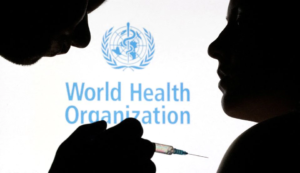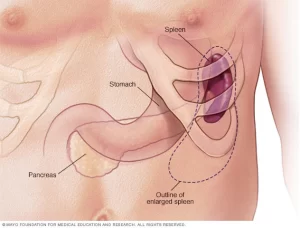
The year 2021 was filled with emotional upheaval. Anticipation for vaccines was followed by perplexing rollouts. Then, as many people were immunized, there was some hope, only to be met with new variants, a tumultuous news cycle, and widespread confusion around the bend. The good news is that people all over the world, including experts, public figures, and children, have begun to talk more openly and helpfully about mental health. We provided tools to help people stay balanced in the face of so much stress and anxiety at Well. As the year draws to a close, we’ve compiled the best tips from our most popular mental health stories to help you navigate 2022 with calm and clarity.
1. Give your gut reaction a name.
Adam Grant predicted it in April, saying, “Languishing might be the dominant emotion of 2021.” People were aware that they were experiencing some sort of emotion, but it wasn’t burnout, depression, or boredom. Dr. Grant wrote, “Languishing is the neglected middle child of mental health.” “It’s the void that exists between depression and flourishing — the lack of happiness.” He offered some suggestions for overcoming languishing, but the most effective first step Dr. Grant suggested was simply naming the sensation. He wrote that doing so provided us with a “clearer window into what had been a blurry experience” and a socially acceptable response to the question, “How are you?”
2. You should also give your mental illness a name
While Lily Burana had always been open about her depression and anxiety, she wrote that receiving a third diagnosis this spring — for A.D.H.D. — made it more difficult to speak openly about her mental health. As a result, Ms. Burana gave “the whole package” a name: Bruce. As in Bruce Springsteen, a public figure who has been candid about his own mental health struggles. “The nickname allows me to efficiently keep people informed of my status,” she wrote. “For example, ‘Bruce has really been bringing me down this week.'” “It helps me lighten up about my own darkness because of the nickname.”
3. Look for meaning in mundane tasks.
There are simple steps you can take to recharge your emotional batteries and spark a sense of fulfillment, purpose, and happiness, according to a growing body of research. This lofty combination of physical, mental, and emotional fitness is referred to as “flourishing” in the psychology community. One simple way to get there is to make your daily activities more purposeful. Cleaning the kitchen, doing yard work, or even washing your pillowcases can all contribute to a feeling of accomplishment. Set a timer for ten minutes and go for a quick jog, or try a one-minute meditation.
4. Try meditating wherever you are.
According to Dr. Judson Brewer, director of research and innovation at Brown University’s Mindfulness Center, your brain is like a computer with a limited amount of working memory. As a result, negative emotions like anxiety and stress can make thinking and problem-solving more difficult. “The first thing we need to do is ground ourselves in the present moment so we can calm down,” Dr. Brewer said, adding that this meditation technique should be kept in your back pocket: Spread the fingers of one hand in front of you. Slowly trace the outside of your hand with your other hand’s index finger, breathing in when tracing up a finger and out when tracing down. All five fingers should be moved up and down. Reverse direction and repeat the process once you’ve traced your entire hand.
5. Allow yourself to be sad about ‘minor’ losses.
A canceled prom, vacation, or time with grandchildren may not seem like much in the grand scheme of human suffering during the pandemic, but mental health experts say that all loss must be acknowledged and grieved. In an article about disenfranchised grief, Tara Parker-Pope wrote, “We need to give ourselves permission to mourn.” “There are steps you can take to help you cope once you accept that your grief is real,” she said. “For example, consider planting a tree or burying an item that represents your loss, such as canceled airline tickets or a wedding invitation.”
6. Take a ‘Sad Day,’ if you need one.
Taking a mental health day off from work or school can help you rest and recharge your brain and body when you need it. “You wouldn’t feel bad about taking time off when you’re sick,” one clinical psychologist told Christina Caron. When you’re sad, you shouldn’t feel bad about taking some time off.” You don’t have to explain why you’re taking the time off to anyone. In most cases, Ms. Caron should simply state that she needs to take a sick day and leave it at that, according to the experts. However, avoid checking your messages or feeling guilty throughout the day. Make a plan to do something that will assist you in recharging your batteries. Here are some of the suggestions made by our readers.
7. Write down what’s bothering you before bed.
Chronically bad sleep is more than just a nuisance. It weakens the immune system, reduces memory and attention span, and increases the likelihood of depression. Anahad O’Connor, who reported on the rise of sleep disturbances during the pandemic, said that one of the most effective treatments for “coronasomnia” was cognitive behavioral therapy, or C.B.T., because this approach helps you address the underlying thoughts, feelings and behaviors that are ruining your sleep. One C.B.T.-inspired strategy is to write down all of your thoughts, especially anything that is bothering you, two hours before bed, then crumple up the paper and throw it away. This symbolic gesture empowers you and calms your mind, a sleep medicine doctor told Mr. O’Connor.
8. Count sheep… or whatever it is you want to do.
3 a.m. wake-up call? Anahad O’Connor also had some advice for that situation, such as limiting your alcohol intake and lowering your caffeine intake. Other suggestions came from our readers: Maria De Angelo, a Los Angeles teacher who also renovates homes, said she closes her eyes and remembers a difficult electrical wiring scheme in a kitchen she once renovated. The mental exercise, similar to counting sheep, induces boredom, which allows her to fall asleep again. On other nights, Ms. De Angelo closes her eyes and recites the names of every state in America in alphabetical order to keep things interesting. “I haven’t gotten past ‘N,'” she admitted. “95 percent of the time, either method — or both — will work.”
9. Give back if you can.
Experts were warning of “an epidemic of loneliness” in the United States long before a pandemic tore people away from their loved ones. Is there a possible cure? In an article about the benefits of volunteering, Christina Caron wrote about kindness toward others. Giving back has been shown to improve our health, reduce loneliness, and broaden our social networks. Begin by setting a small goal, such as volunteering once a week or once a month, and work your way up. Give back if you can.
Experts were warning of “an epidemic of loneliness” in the United States long before a pandemic tore people away from their loved ones. Is there a possible cure? In an article about the benefits of volunteering, Christina Caron wrote about kindness toward others. Giving back has been shown to improve our health, reduce loneliness, and broaden our social networks. Begin by setting a small goal, such as volunteering once a week or once a month, and work your way up.
10. Give yourself a break at the end.
Tara Parker-Pope heard from a lot of readers during our two-week Fresh Start Challenge who were berating themselves for gaining weight or exercising less during the pandemic lockdowns. “Shaming yourself is counterproductive,” she says. Rather, cultivate self-compassion. One of the most straightforward ways to do so is to ask yourself one question: “What do I require right now?”
Also Read:
Daddy Andre In New Visuals With Benti Boys Africa Of Nakuwona Song | Download
“For the aborting rumours, we never did,” Daddy Andre Denies
An-Known Run Di Town Song Makes Rounds On Social Media
Eric Omondi Grief For East African Music Industry
Pinky Rahmah Releases New Song Dubbed Super Star








